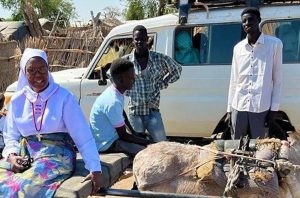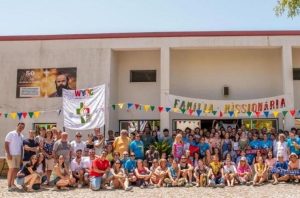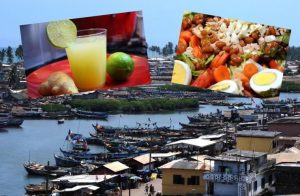In the last months, Togo has been shaken by strong popular protests that claim a limitation on the number of presidential mandates. Women are at the forefront of the popular protest against the power of President Faure Gnassingbe.
Setting off from three different meeting points, the women, dressed mostly in black, were accompanied by men and opposition leaders for the demonstration, which lasted several hours in Lomé, the Togolese capital. “We will from now on take our destiny in our own hands, because we are the ones who suffer the most in our families from this situation”, protesters said. “We took to the streets to affirm our role in Togolese society. We have chosen the colour black to really show that we are grieving, that things are not working. When a black woman wears black, it means she is truly grieving. Our children, our brothers, are unjustly in prison. The requests remain the same as those of the coalition. We want the return of the constitution of ’92, the respect of our rights, we want things to really change. We are ready to take to the streets for other events. We will no longer remain in the second row. The future of our children is at stake”, they said during the demonstration.
“The population is asking for one thing, an alternative. That is because the reality in Togo has been the same for 50 years, the same name, the same family. The people therefore only ask this: give us an alternative to see if this works. I do not think this is an excessive request”, says Fr. Elias Sindjalim, a Comboni Togolese missionary.
In September the Bishops had supported popular demands by seeking to re-establish the limit of two presidential mandates established by the 1992 Constitution.
“The Church was clear, the Bishops’ Conference of Togo clearly stated that what the people ask is a legitimate request that needs to be welcomed”, comments Fr. Elias. The missionary says he feels hopeful because “when people take destiny in their hands, there is hope. The fight may be long, but the victory will be ours. I would like to emphasise that the popular protest is peaceful”.
“The government has proposed to open dialogue”, continues the missionary. “Civil society agrees to dialogue, but remembers that there have already been so many negotiations that have led to nothing and now popular pressure continues to push so that this time we get real results and obtain a real change”.
Several West African countries, worried about the instability that the Togo crisis can cause, have called for a dialogue between power and opposition, with the mediation of Ghanaian president Nana Akufo-Addo and that of Guinea, Alfa Condé. The two Heads of State have received a delegation from the Togolese opposition in Conakry and Accra to try to start dialogues, which are still blocked.
Togo has been shaken by strong popular protests, that claim a limitation on the number of presidential mandates in order to allow for a change concerning the Heads of State, led since 2005 by President Faure Gnassingbé Eyadéma, the son of General Gnassingbé Eyadéma, who reigned for 38 years until his death. The government has submitted a draft constitutional amendment, which has promised to submit to a popular referendum, but the opposition rejects it because the limitation of mandates is not retroactive, which would allow Faure Gnassingbe to candidate himself in 2020 and in 2025.








